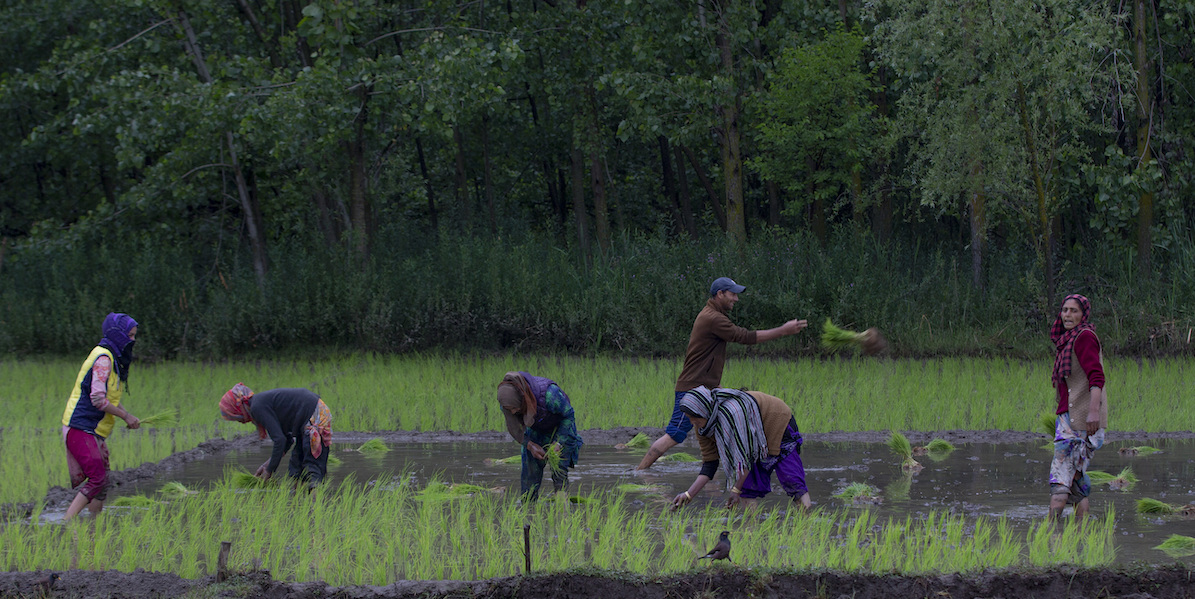Loading player
A dispute has been going on for years between India and Pakistan which not only has to do with some border territories disputed by both countries, but also with basmati, the famous fragrant rice with elongated grains originating mainly from the vast Indian alluvial plain. gangetica, which extends to the center of the Indian peninsula, between the Indus and the Ganges. India and Pakistan are the main world producers and exporters of this cereal and both, separately, have made a request to the European Union to obtain the PGI mark, the protected geographical indication for basmati produced in their territory. For now, no decision has been made.
Basmati is grown in northern India, on the slopes of the Himalayas and on the Indus and Ganges plains. And this is precisely where part of the problem lies. India and Pakistan were born as separate and independent states only in 1947 following the partition of the Indian subcontinent, following the collapse of the British colonial empire. The birth of the two countries was characterized by enormous tensions, which caused the mass migration of millions of people and generated terrible violence, which in turn caused a million deaths. Even today some border areas remain disputed.
India is the world‘s largest exporter of basmati, but Pakistan is the largest exporter to the European Union. More than 200,000 tonnes of Pakistani basmati rice were exported to Europe in 2022, compared to around 100,000 tonnes of Indian basmati. The average for previous years indicated that two thirds of basmati rice in Europe came from Pakistan and one third from India. The weight of Pakistani exports depends above all on compliance with the cultivation standards imposed by the European Union countries.
Over time, to improve the yield and productivity of basmati, India has in fact developed alternative varieties to the original, extremely delicate one. With these new varieties already in 1989 the yield went from 2 to 6 tons of rice per hectare and from the 2000s onwards other varieties were introduced which no longer mature in 160 days, but in 135 or even 120. This has allowed between more for farmers to grow vegetables, potatoes or coriander, between two rice crops.
However, some of these new varieties are rather fragile and susceptible to diseases and have required the use of pesticides, which has created several problems for the marketing of the product from India abroad.
In order not to compromise exports, in 2018 India decided to favor local production by filing with the European Commission the request to obtain the Protected Geographical Indication (PGI) for its basmati and thus the exclusive use of the term “basmati” in ‘Union. The PGI is attributed to agricultural and food products considered to be of high quality and strongly linked to the territory of origin: to obtain it it is necessary that at least part of the production, processing or preparation of the product takes place in the city or area indicated as origin.
On 11 September 2022, the European Commission published the registration application submitted by India in its Official Journal. The legislation provides that within three months of publication the authorities of a member state or a third country or any natural or legal person who has a legitimate interest can submit a notification of objection to the Commission. Pakistan submitted its appeal in December, just days before the deadline. Furthermore, in 2023 it filed its application for recognition of the PGI on the basmati of its territory. Pakistan’s question it’s been published officially in the Journal of the European Commission on Friday 23 February.
In the past, India and Pakistan had worked together to protect basmati. At the end of the 1990s, an American brand attempted to file a patent on rice varieties called “basmati” developed and grown in Texas. The Indian and Pakistani governments opposed it and together won the case. In 2008 the two countries also made an attempt to reach an agreement by starting a dialogue on a possible joint application for the PGI in the European Union, but the Mumbai attacks of November 26, attributed to Pakistani Islamist militants, interrupted the negotiations.
Today there are cross-border PGIs, i.e. those involving multiple states, but given the complicated relations between India and Pakistan the creation of a cross-border geographical indication on basmati currently seems unlikely.
Delphine Marie-Vivien, a French PGI specialist, said the European Union would be unlikely to refuse certification to either country because they both produce basmati legitimately. In short, the European Commission could opt for a solution that does not displease anyone and does not exacerbate tensions by recognizing a PGI for basmati rice originating in Pakistan and a PGI for basmati rice of Indian origin.
